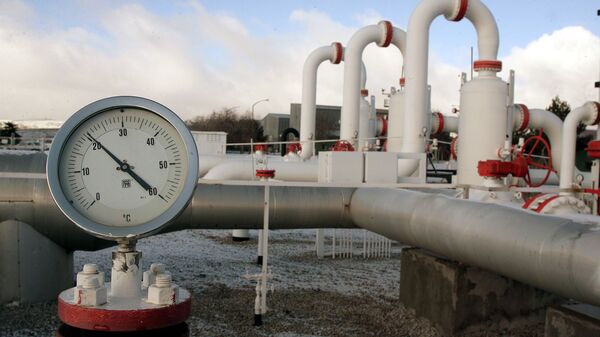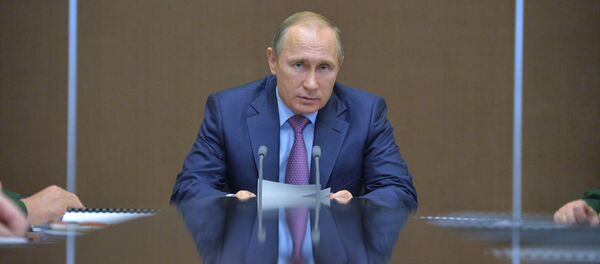MOSCOW (Sputnik) — The GECF comprises Algeria, Bolivia, Egypt, Equatorial Guinea, Iran, Libya, Nigeria, Qatar, Russia, Trinidad and Tobago, United Arab Emirates and Venezuela. Iraq, Kazakhstan, the Netherlands, Norway, Oman and Peru have the status of observer members.
The member countries together account for 67 percent of the world’s proven natural gas reserves.
The forum aims to support sovereign rights for member countries over their natural gas resources and their abilities to independently plan and manage the sustainable, profitable, efficient and environmentally conscious development, use and conservation of natural gas resources for the benefit of their populace.
The GECF operated as an informal group until 2008, limiting its activities to exchanging opinions and data on gas production, transportation and marketing.
In the light of subsequent developments in their markets, gas producing countries have reorganized and formalized their group to better protect their interests.
A ministerial meeting held in Moscow, Russia, on December 23, 2008, established the GECF as an international governmental organization.
The decision came into effect on September 30, 2009.
The forum has three constituent bodies: the Ministerial Meeting, the Executive Board and the Secretariat.
The Ministerial Meeting, held once a year, is the supreme governing body of the forum. It formulates the general policy of the forum, appoints the secretary general, confirms the appointment of members of the Executive Board, and considers and decides upon the budget of the institution.
The Executive Board is composed of representatives nominated by each member, one nominee from each country, and observer country envoys, who do not have the right to vote. It implements the decisions taken by the Ministerial Meeting and approves the work agenda of the Secretariat.
The Secretariat supervises the activity of the forum in accordance with the decisions of the Ministerial Meeting and instructions from the Executive Board.
The organization’s current Secretary General, Seyed Mohammad Hossein Adeli, is an experienced economist, diplomat and academic from Iran.
On May 30, 2012, President Vladimir Putin signed an executive order to appoint Chairman of the Gazprom Board of Directors Viktor Zubkov as Special Presidential Representative for cooperation with the Gas Exporting Countries Forum.
The first GECF member-country summit was held in Doha, Qatar, on November 15, 2011. Russia was represented by Energy Minister Sergei Shmatko.
The event resulted in a declaration outlining the role of natural gas in the global economy, enhanced coordination of gas exporting countries, the importance of fair prices for natural gas, and the principle of a balanced distribution of risks between gas producers and consumers.
The presidents of Bolivia, Venezuela, Iran and Equatorial Guinea, the Iraqi prime minister, the Algerian parliament speaker, the energy ministers of Egypt, Qatar, Libya, Nigeria, Oman, the United Arab Emirates, and Trinidad and Tobago all visited the second summit.
Participants adopted the Moscow Declaration, a document outlining gas-producing-country priorities including long-term contracts, the connection between natural gas, crude oil and petrochemical prices, and member country determination to oppose discrimination by gas consuming countries.
The 16th Ministerial Meeting of the GECF took place in Doha, Qatar, on December 16, 2014.
Energy ministers from Algeria, Iran, Libya, Qatar, Russia and the United Arab Emirates, chief delegates from Bolivia, Equatorial Guinea, Egypt, Nigeria, Peru, Trinidad and Tobago, and Venezuela, as well as observer countries the Netherlands, Norway and Oman attended the meeting.
The ministers discussed world gas markets, GECF development strategy, Executive Board performance in 2014, and the future.
The third gas summit will be held in Tehran, Iran, on November 23.



